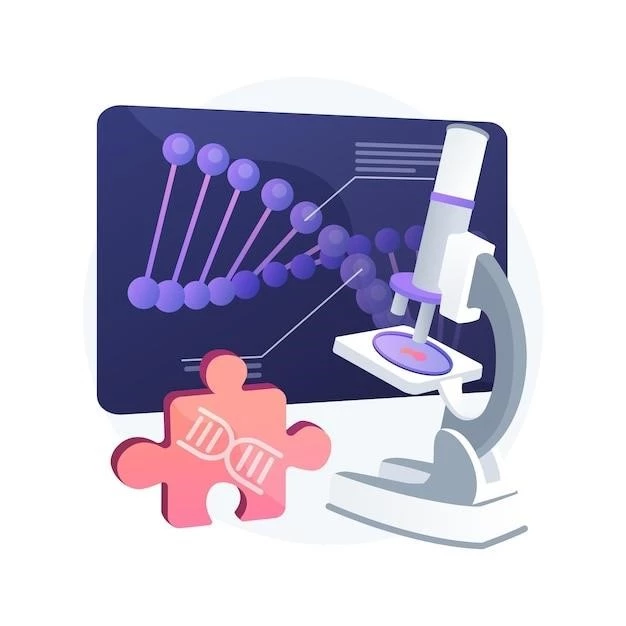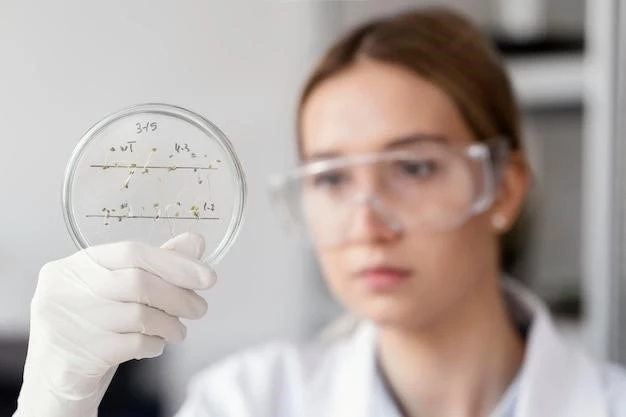Ilyina–Amoashy–Grygory Syndrome
Overview of Ilyina–Amoashy–Grygory Syndrome
Ilyina–Amoashy–Grygory syndrome is a rare genetic disorder characterized by a constellation of symptoms including neurological abnormalities, intellectual disability, seizures, and developmental delays. This syndrome is caused by specific genetic mutations.
Individuals with Ilyina–Amoashy–Grygory syndrome may present with a range of symptoms such as muscle weakness, speech difficulties, and vision problems. The severity of the condition can vary widely among affected individuals, leading to challenges in diagnosis and management.
Due to the complexity of the syndrome, a multidisciplinary approach involving neurologists, geneticists, pediatricians, and other specialists is crucial for providing comprehensive care to individuals with Ilyina–Amoashy–Grygory syndrome. Early diagnosis through genetic testing can help guide treatment strategies and interventions.
Clinical management of this syndrome typically involves symptom-specific therapies, seizure management, physical and occupational therapy, and educational support to address developmental delays. Supportive care plays a critical role in improving the quality of life for individuals with this rare disease.
Symptoms of Ilyina–Amoashy–Grygory Syndrome
Individuals with Ilyina–Amoashy–Grygory syndrome may present with a range of symptoms, including neurological abnormalities such as muscle weakness, coordination issues, and tremors. Cognitive impairment, intellectual disability, and speech delays are also commonly observed in affected individuals.
Seizures are a prominent feature of Ilyina–Amoashy–Grygory syndrome, with varying types and severity. Vision problems, including strabismus and visual processing difficulties, can impact the daily functioning of individuals. Behavioral challenges, such as hyperactivity or impulsivity, may also be present.
Motor difficulties, including hypotonia (low muscle tone), spasticity, and delays in achieving developmental milestones like sitting and walking, are often reported. Gastrointestinal issues, feeding difficulties, and sleep disturbances can also contribute to the overall symptomatology of the syndrome.
Due to the multisystem nature of Ilyina–Amoashy–Grygory syndrome, individuals may experience a complex interplay of symptoms that require a holistic and individualized approach to clinical management and supportive care.
Diagnosis of Ilyina–Amoashy–Grygory Syndrome
Diagnosing Ilyina–Amoashy–Grygory syndrome often involves a comprehensive evaluation by a team of specialists including geneticists, neurologists, and pediatricians. Clinical assessment may include a thorough medical history review, physical examination, and neurological testing to identify characteristic features of the syndrome.
Genetic testing plays a crucial role in confirming the diagnosis, as Ilyina–Amoashy–Grygory syndrome is caused by specific genetic mutations. Molecular testing techniques such as chromosomal microarray analysis and next-generation sequencing can help identify the underlying genetic abnormalities associated with the syndrome.
Additionally, imaging studies such as magnetic resonance imaging (MRI) of the brain may be performed to evaluate structural abnormalities or anomalies that are common in individuals with Ilyina–Amoashy–Grygory syndrome. Electroencephalography (EEG) may be utilized to assess and monitor seizure activity in affected individuals.
A comprehensive diagnostic approach is essential to accurately identify Ilyina–Amoashy–Grygory syndrome, enabling timely intervention and appropriate clinical management strategies to improve the outcomes and quality of life for individuals affected by this rare genetic disorder.
Treatment Options for Ilyina–Amoashy–Grygory Syndrome
Management of Ilyina–Amoashy–Grygory syndrome typically involves a multidisciplinary approach aimed at addressing the diverse range of symptoms associated with the disorder. Treatment strategies are tailored to the individual needs of each patient and may include a combination of medical, therapeutic, and supportive interventions.
Seizure control is a primary focus in the management of Ilyina–Amoashy–Grygory syndrome. Antiepileptic medications are commonly prescribed to help reduce the frequency and severity of seizures. Regular monitoring and adjustment of medications may be necessary to optimize seizure management.
Physical and occupational therapy play a crucial role in improving motor skills, coordination, and muscle strength in individuals with Ilyina–Amoashy–Grygory syndrome. Speech therapy can help address communication difficulties and improve language development.
Supportive care measures such as nutritional support, behavioral therapies, and educational interventions are important components of the treatment plan. Assistive devices and adaptive technologies may be recommended to enhance independence and quality of life for individuals with the syndrome.
Regular follow-up visits with specialists are essential to monitor progress, adjust treatment strategies as needed, and provide ongoing support to individuals and their families. A comprehensive and proactive approach to treatment can help optimize outcomes and enhance the overall well-being of individuals living with Ilyina–Amoashy–Grygory syndrome.
Prognosis of Ilyina–Amoashy–Grygory Syndrome
The prognosis for individuals with Ilyina–Amoashy–Grygory syndrome can vary significantly depending on the severity of symptoms and the presence of comorbidities. Due to the multisystem nature of the disorder and the potential for complications, early diagnosis and comprehensive clinical management are crucial for improving outcomes.
While Ilyina–Amoashy–Grygory syndrome is a lifelong condition requiring ongoing care, advancements in medical treatments and supportive interventions have improved the quality of life for affected individuals; With early intervention and a coordinated multidisciplinary approach, individuals with the syndrome can achieve meaningful developmental progress and functional independence.
Seizure control, cognitive support, and motor skill development are key areas of focus in enhancing the long-term prognosis for individuals with Ilyina–Amoashy–Grygory syndrome. Continued research into the underlying genetic mechanisms and potential targeted therapies may further improve outcomes and quality of life for those living with this rare genetic disorder.
Regular monitoring, proactive management, and access to specialized care can help mitigate complications and optimize the prognosis for individuals with Ilyina–Amoashy–Grygory syndrome. Support from healthcare providers, caregivers, and the broader community is essential in promoting the well-being and overall health of individuals affected by this complex syndrome.
Clinical Management of Ilyina–Amoashy–Grygory Syndrome
The clinical management of Ilyina–Amoashy–Grygory syndrome requires a comprehensive and individualized approach to address the diverse symptoms and challenges associated with the disorder. A multidisciplinary team of healthcare professionals, including neurologists, geneticists, therapists, and educators, collaborates to develop personalized treatment plans for each patient.
Seizure management is a critical aspect of clinical care for individuals with Ilyina–Amoashy–Grygory syndrome. Antiepileptic medications are commonly prescribed to prevent and control seizures, with close monitoring of medication efficacy and potential side effects.
Physical and occupational therapy play a key role in promoting motor function, improving coordination, and enhancing independence in daily activities. Speech therapy is essential for addressing communication difficulties and supporting language development in affected individuals.
Regular medical evaluations, including neurodevelopmental assessments and monitoring of growth and nutritional status, are vital components of clinical management. Genetic counseling may also be recommended to provide information about the genetic basis of the syndrome and offer support to individuals and families.
Coordination of care among specialists, proactive intervention strategies, and ongoing support for individuals and their families are essential in ensuring optimal clinical management of Ilyina–Amoashy–Grygory syndrome. By addressing the complex needs of patients holistically, healthcare teams strive to enhance overall well-being and quality of life for individuals living with this rare genetic disorder.
Supportive Care for Individuals with Ilyina–Amoashy–Grygory Syndrome
Supportive care plays a pivotal role in enhancing the quality of life and well-being of individuals living with Ilyina–Amoashy–Grygory syndrome. A comprehensive approach that addresses the physical, emotional, and social needs of patients is essential to provide holistic support;
Nutritional support is crucial for individuals with Ilyina–Amoashy–Grygory syndrome, given the potential for feeding difficulties and gastrointestinal issues. Dieticians may work with patients and families to ensure adequate nutrition and address any specific dietary concerns or restrictions.
Behavioral therapies and psychological support can help individuals manage emotional challenges, anxiety, and behavioral issues that may arise due to the complexities of the syndrome. Counseling and support groups offer additional resources for individuals and families coping with the impact of the disorder.
Assistive technologies and devices, such as mobility aids, communication tools, and adaptive equipment, can empower individuals with Ilyina–Amoashy–Grygory syndrome to navigate daily tasks and engage more fully in their environment. Access to these supportive tools is essential for promoting independence and participation.
Respite care services may also be beneficial for caregivers, providing temporary relief and assistance in managing the demands of caring for individuals with complex needs. The involvement of community resources and advocacy organizations can further enhance the support network available to individuals and families affected by Ilyina–Amoashy–Grygory syndrome.

Multidisciplinary Approach to Addressing Ilyina–Amoashy–Grygory Syndrome
Addressing the complex needs of individuals with Ilyina–Amoashy–Grygory syndrome necessitates a coordinated and multidisciplinary approach involving a diverse team of healthcare professionals. Collaboration among specialists from various fields is essential to provide comprehensive care and support to individuals and their families.
Neurologists play a key role in the diagnosis and management of neurological symptoms and seizures associated with Ilyina–Amoashy–Grygory syndrome. Geneticists contribute expertise in identifying and understanding the underlying genetic factors contributing to the syndrome, guiding diagnostic testing and potential treatments.
Pediatricians and primary care providers are integral in overseeing the overall health and well-being of individuals with Ilyina–Amoashy–Grygory syndrome, coordinating care among different specialists, and monitoring developmental progress and growth.
Therapists, including physical, occupational, and speech therapists, are essential members of the multidisciplinary team, focusing on enhancing motor skills, promoting independence, and addressing communication challenges in individuals with the syndrome.
Educators and psychologists also play important roles in supporting individuals with Ilyina–Amoashy–Grygory syndrome, offering educational resources, behavioral interventions, and emotional support to help optimize learning opportunities and social interactions.
By integrating the expertise and perspectives of diverse professionals, a multidisciplinary approach can provide comprehensive, individualized care that addresses the unique needs of each individual with Ilyina–Amoashy–Grygory syndrome, ultimately aiming to optimize outcomes and promote overall quality of life.
Conclusion
In conclusion, Ilyina–Amoashy–Grygory syndrome is a rare genetic disorder characterized by neurological abnormalities, intellectual disability, seizures, and developmental delays. The complexity of the syndrome necessitates a multidisciplinary approach to diagnosis, treatment, and supportive care.
Early diagnosis through genetic testing, comprehensive clinical management, and proactive intervention strategies are essential in addressing the diverse needs of individuals with the syndrome. By focusing on symptom-specific therapies, seizure management, and supportive care, healthcare professionals aim to optimize outcomes and enhance the quality of life for affected individuals.
Support from a multidisciplinary team of healthcare providers, including neurologists, geneticists, therapists, and educators, is crucial in delivering individualized care and addressing the unique challenges presented by Ilyina–Amoashy–Grygory syndrome.
Continued research into the underlying genetic mechanisms of the syndrome and advancements in therapeutic interventions hold promise for improving prognoses and outcomes for individuals living with this rare genetic disorder. By advocating for awareness, early intervention, and comprehensive clinical management, we can strive to enhance the well-being and quality of life of individuals and families affected by Ilyina–Amoashy–Grygory syndrome.
